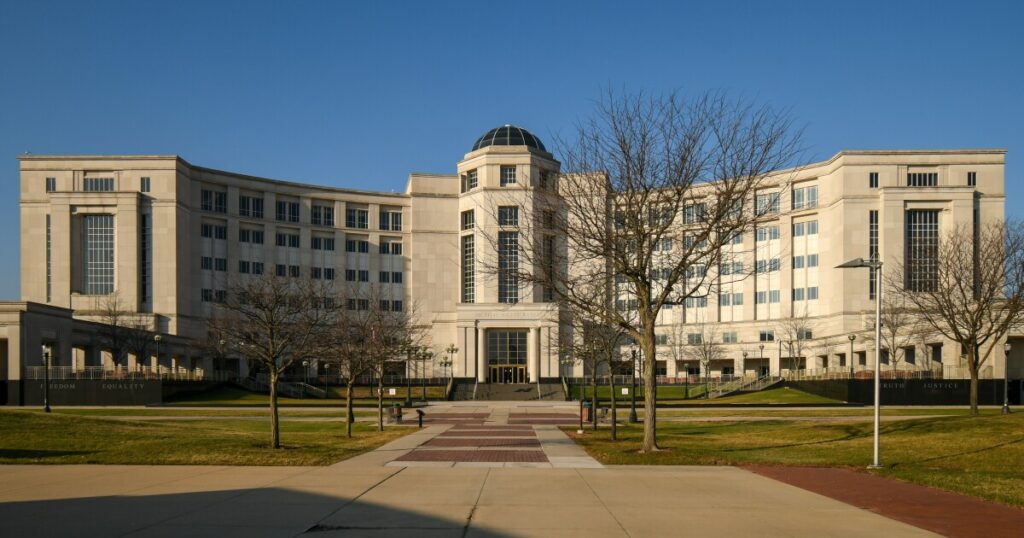Michigan Supreme Court Considers Courthouse Civil Arrest Ban
In a move that could reshape courthouse procedures, the Michigan Supreme Court has introduced a proposal to prohibit civil arrests within courthouse premises. While judicially approved warrants would remain actionable, the proposal might impact civil immigration detentions, even though it doesn’t explicitly mention them.
This initiative aligns with similar policies enacted in states like Illinois and New York. New York’s legislation, which faced legal challenges from the federal government during the Trump administration, was recently upheld by a federal district judge. The crux of the legal battle centered on the state’s authority to limit federal immigration enforcement powers.
The Michigan Immigrant Rights Center has observed rising concerns among individuals wary of Immigration and Customs Enforcement (ICE) presence near courthouses. Christine Sauvé, a representative of the center, emphasized that such fears could prevent people from engaging with the legal system, thus jeopardizing their rights and safety. “It can deter people from using the courts and accessing the court process that they need to preserve individual rights for well-being and again for public safety,” Sauvé stated.
Despite potential restrictions on courthouse arrests, Sauvé highlighted that ICE would still have numerous opportunities for enforcement elsewhere. She underscored the critical nature of court matters, suggesting that the advantages of court access might surpass the risks of immigration enforcement. “Especially given how essential so many of the matters are that go before our state courts. And sometimes the benefits outweighs the potential risk of immigration enforcement,” she said.
Feedback on this proposed rule is being solicited until December 22. Tom Boyd, Michigan’s state court administrator, remarked on the openness of the process, noting that public input could shape the final outcome of the rule, which might remain unchanged, be altered, or be dismissed entirely. “The publication process could result in a rule that looks exactly like this or a rule that looks different from this. Or no rule at all. It’s really just an open ended inquiry,” Boyd explained.
—
Read More Michigan News










